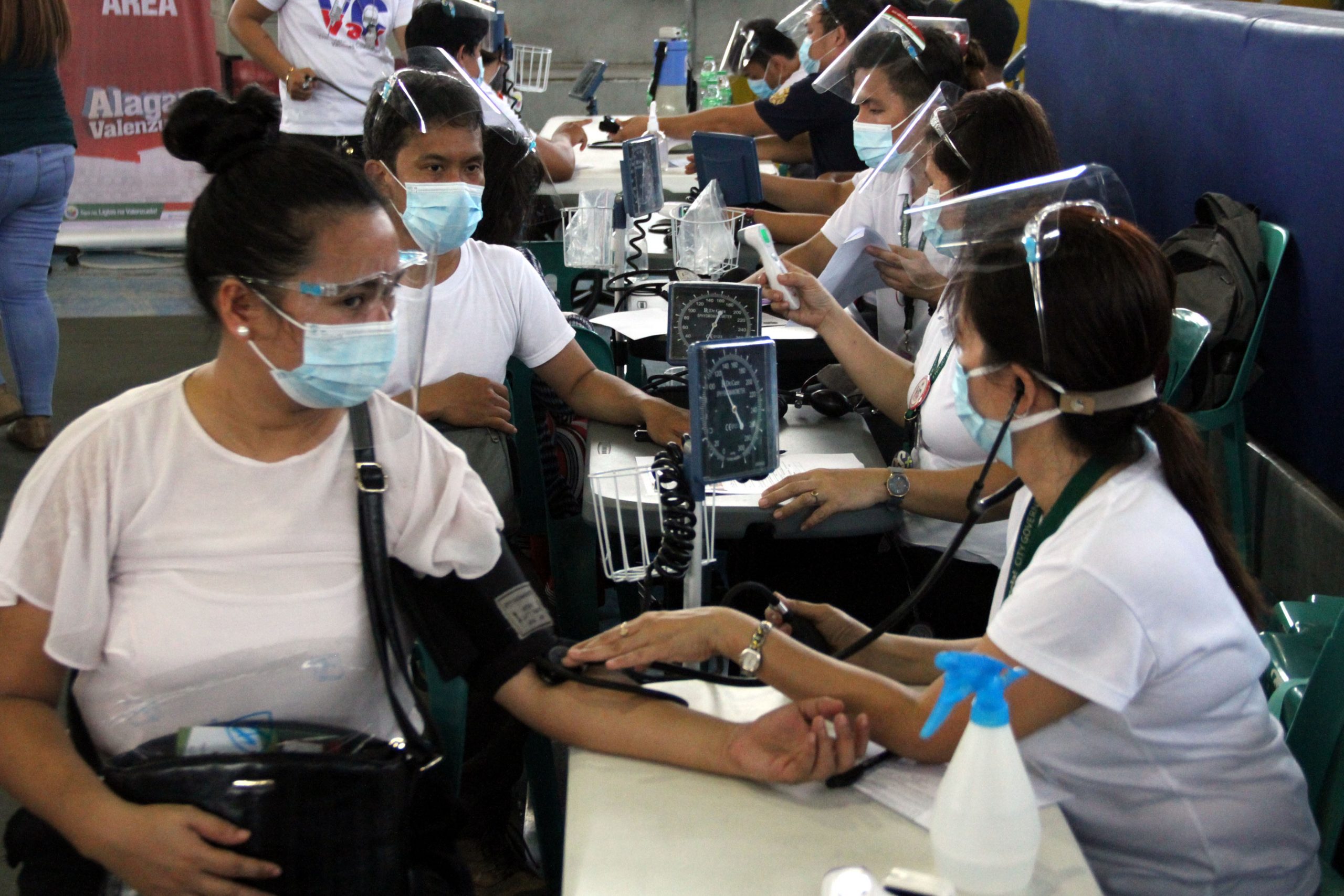News
Senate urged to support more benefits for barangay health workers

FILE: BLOOD PRESSURE CHECK. Health workers check the blood pressure of vaccine recipients at the Valenzuela Astrodome in Barangay Dalandanan, Valenzuela City on Monday (June 28, 2021). (PNA photo by Jess M. Escaros Jr.)
MANILA – A lawmaker on Monday urged the Senate to consider passing a proposal seeking to provide barangay health workers (BHWs) with more compensation and benefits.
Camarines Sur Representative Luis Raymund Villafuerte said the House-approved measure aims to give job security to BHWs, which would “de-politicize” their employment in local government units (LGUs).
“It is an uncontroverted fact that BHWs are at the mercy of local government officials, in the absence of their security of tenure,” Villafuerte said. “They can be terminated capriciously at the instance of perceived adverse political leanings. Thus, the present system allows them to be politicized. We must put an end to this unscrupulous practice.”
If the bill is enacted into law, he said qualified BHWs will receive a broad set of economic incentives and benefits ranging from a PHP3,000 monthly allowance and hazard pay to insurance coverage and free medical and legal services.
He said the proposed Magna Carta for Barangay Health Workers, which has already been transmitted to the Senate, provides for security of tenure in conferring a first-grade Civil Service Eligibility to every accredited BHW who has rendered at least five years of continuous service as a community health worker.
The BHWs, he said, are “truly indispensable as basic medical frontliners” in local communities.
He, however, pointed out that they are treated as mere “volunteers” under Republic Act (RA) 7883, or “The Barangay Health Workers’ Benefits and Incentives Act of 1995,” who each receive about five weeks of training and meager pay.
“They are always in the frontline of providing maternal, newborn and child health care in the neighborhood, and act as health educators and community organizers in promoting the government’s health awareness campaigns down to the smallest unit of our society: the family. Undeniably, the nature of their work is full-time,” he said.
The bill, he said, aims to revise the existing law in order to recognize and improve on the realities presently in place.
“We must recognize that our barangay health workers and the barangay health services they help deliver at the grassroots level are keys to the country’s attainment of high and inclusive growth through sustainable human development,” he said.
The bill further requires the municipal, city or provincial government to set up with the Department of the Interior and Local Government (DILG) a grievance mechanism to settle complaints regarding acts of discrimination against or unjust removal of BHWs from their jobs.
The bill also requires the Department of Health (DOH) to draw up and maintain a national registry of BHWs who are entitled to receive the new set of economic incentives and benefits.





















